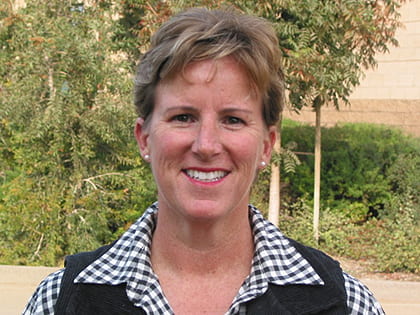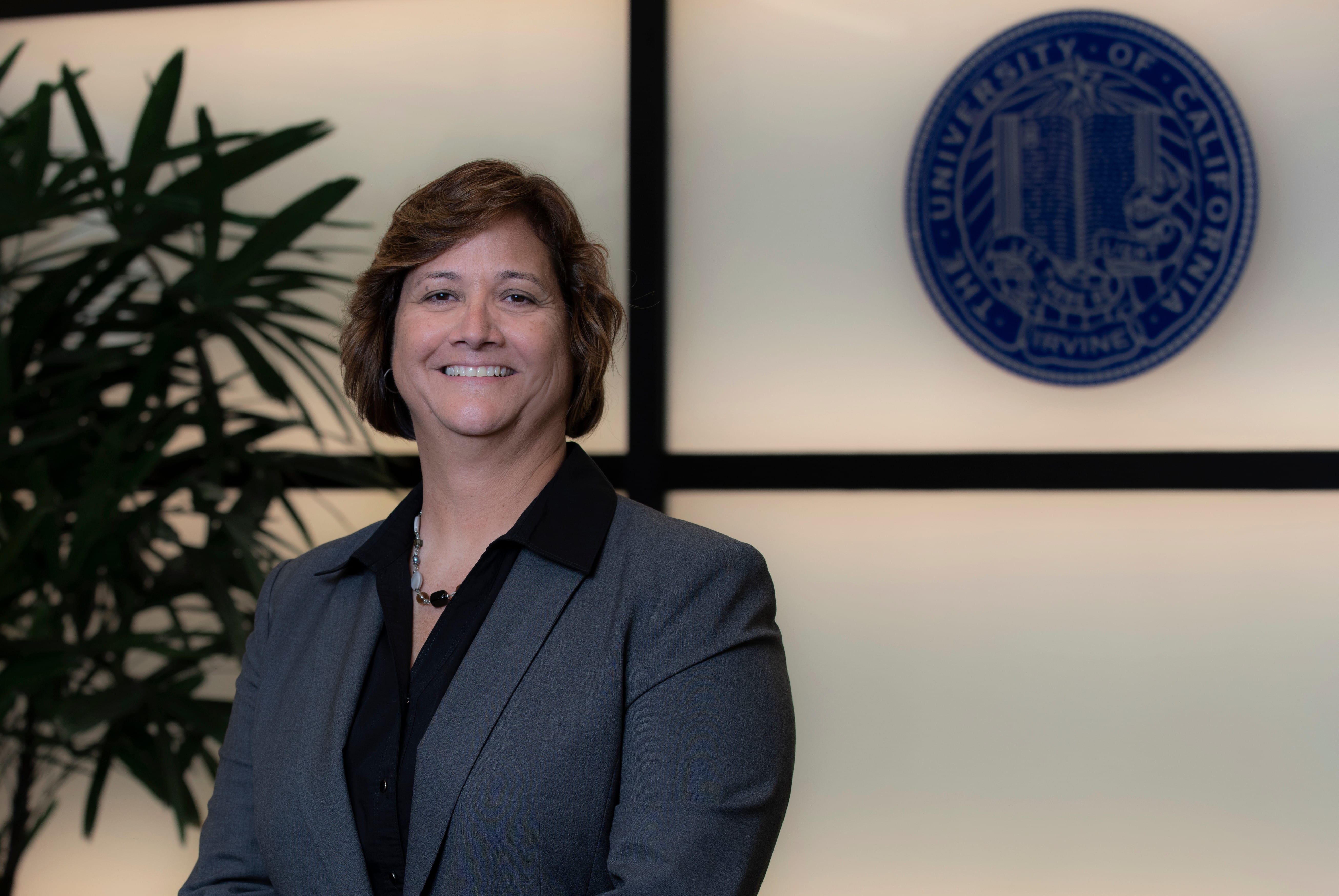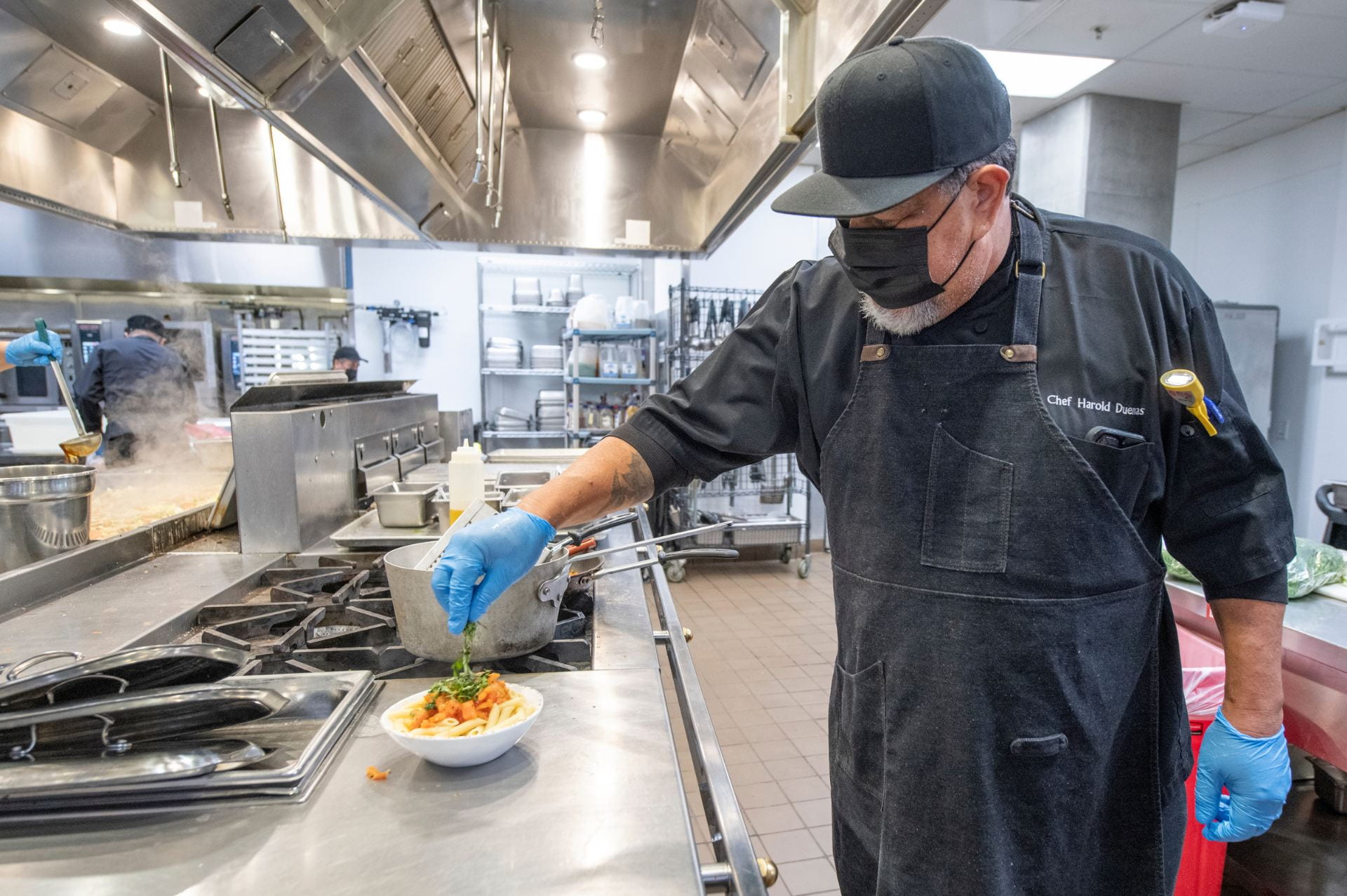Card-caring samaritan
Farm school teacher uses UCI-sponsored CPR training to save infant’s life

Smoke from a September brush fire had southbound I-5 traffic creeping along north of Los Angeles. Already late to pick up her three children in Irvine, Lauren Redington was stuck in the fast lane, aggravation rising in the 105-degree heat. Glancing left, she saw a woman outside her car, grasping a baby about 2 years old and frantically breathing into the child’s mouth.
When Redington pulled over, the baby’s skin was a dusky blue. “He’s choking,” screamed the mother, shoving the baby into Redington’s arms. Her mind racing to review the CPR- first aid class she had taken only three days earlier, Redington sat the child facing away from her on her knee, and after a couple of back blows and a thrust to the baby’s abdomen, “Out popped a wad of bologna and bread the size of a ping-pong ball,” says Redington. “The baby cried and pinked up right away. But mom was a wreck.”
“How can I ever thank you?” said the young mother. “By taking a class and getting trained yourself in these skills,” suggested Redington, who took her initial CPR class 20 years ago.
A UCI psychology graduate, Redington now teaches math and science to 5- through 8-year-olds at the UCI Farm School. She recently completed the emergency course again with her fellow teachers through the Adult Workplace CPR-First Aid Program, offered at the Anteater Recreation Center.
“In February, the university began offering the classes free to staff and faculty so as many people as possible will have this lifesaving skill,” says Mike Puritz, associate director of Campus Recreation Programming. So far, about 500 people have taken the six-hour course.
On the long drive home from that fateful trip, Redington resolved to do more. She would use this experience to convince friends, neighbors and acquaintances to take a CPR class. Working with the American Red Cross, she enlists trainees, collects the $60 fee, submits the paperwork and arranges locations. The Red Cross supplies the CPR equipment and instructor. She has one class filled already and plans to organize a class a month for the next six months at least.
Seated on a child’s chair in the Farm School “little kids’ house,” Redington’s determination is obvious. “What if I hadn’t been recertified? I might have passed by that day, afraid and thinking, ‘Someone else will stop.’ But no one else did stop, and emergency vehicles couldn’t have made it in time.
“Every adult needs to know CPR and first aid, no excuses,” she says. “The class doesn’t guarantee you’ll have the courage to act when the time comes, but at least it takes ignorance out of the equation.”

